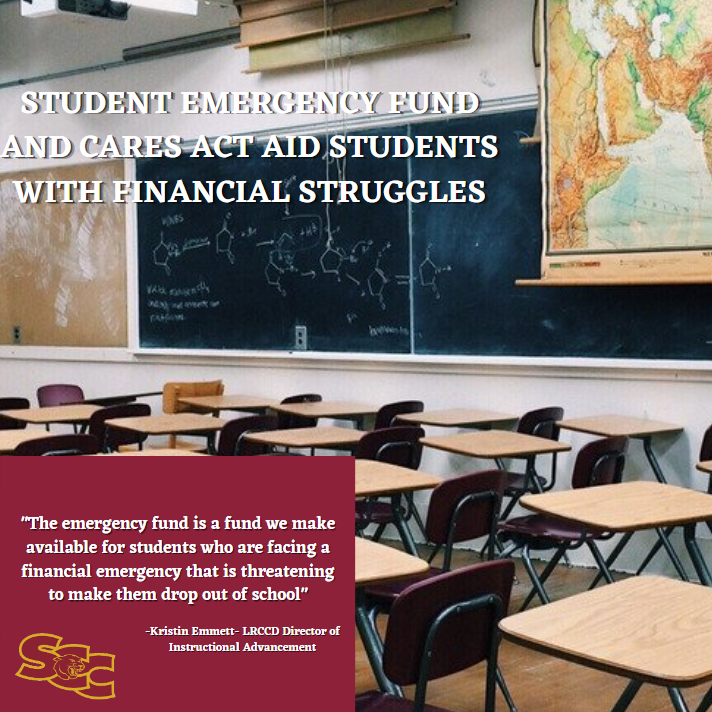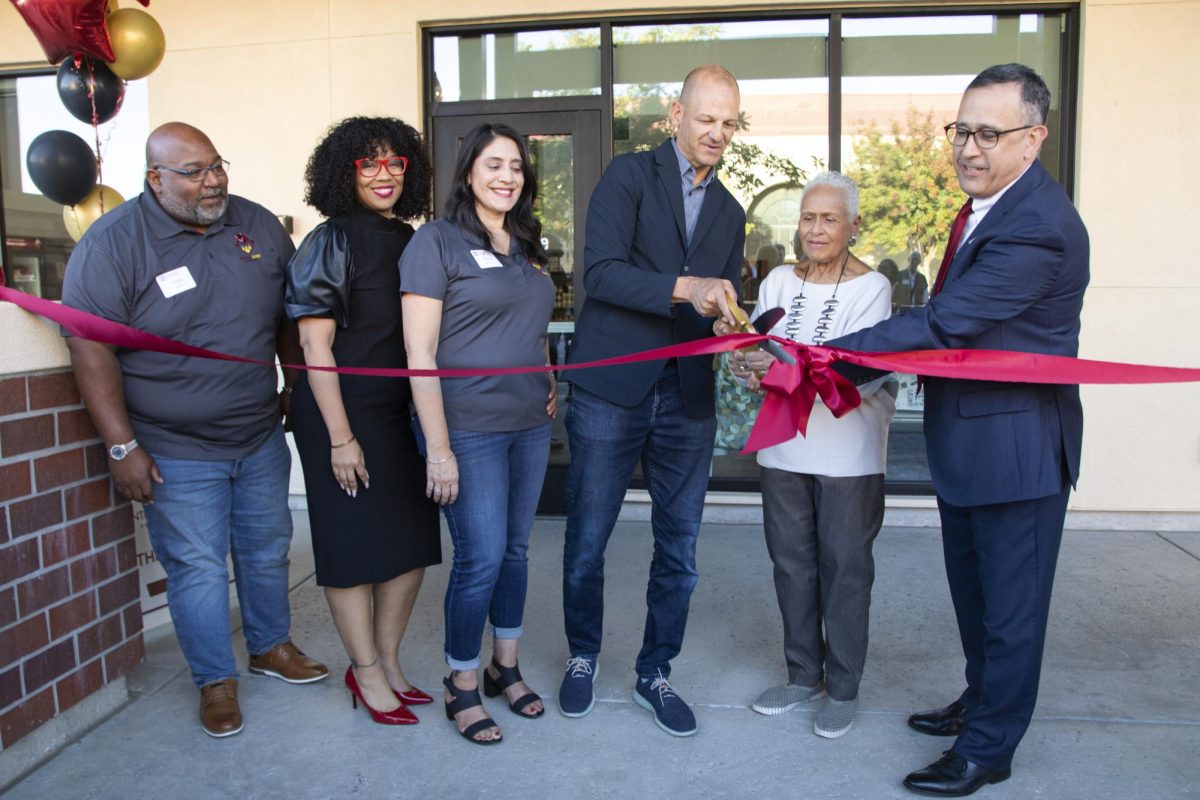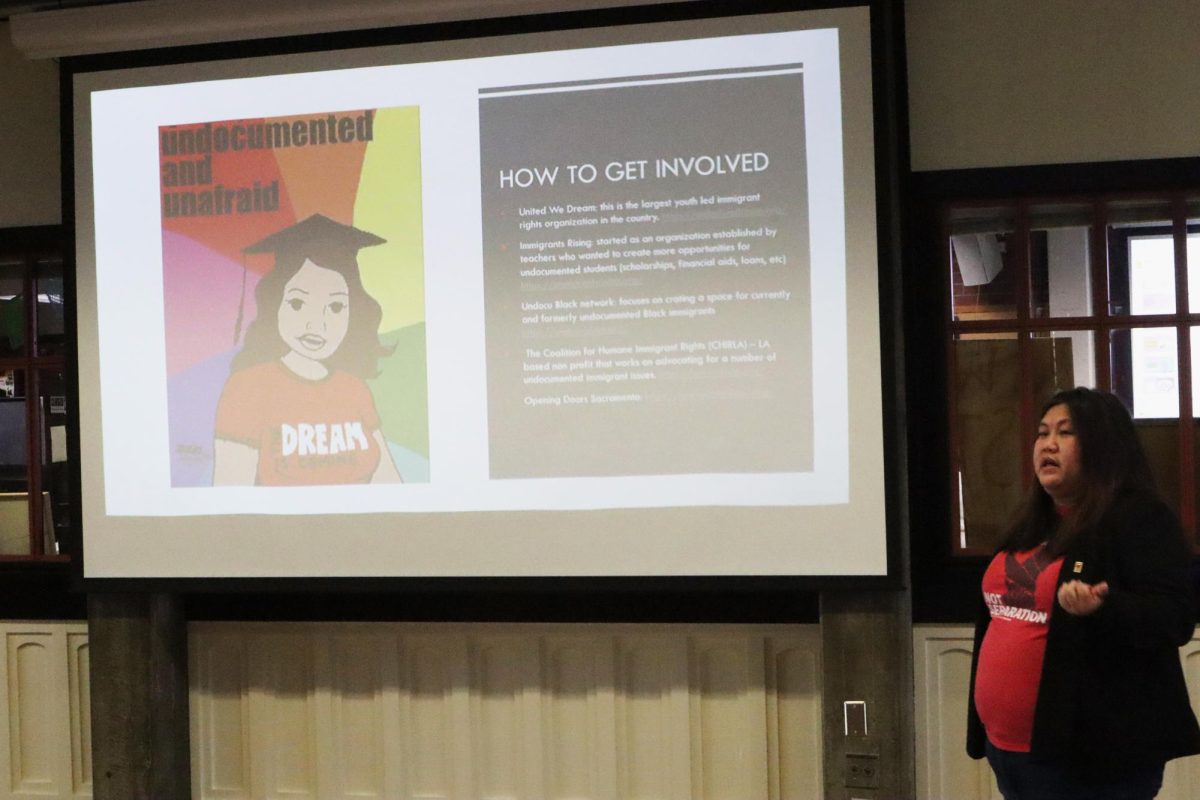In the first week of campus closures, the Los Rios Emergency Fund received 127 student applicants. Since those orders were issued in March, administrators of the Student Emergency Fund found themselves occupied assisting students where they could.
Before Los Rios moved to remote instruction, Los Rios Vice Chancellor of Resource Development Paula Allison was at a fundraising conference in San Francisco. Once the decision to go online was made, Allison began a campaign to assist Los Rios students.
“The week before we knew that we were going remote, I started getting a campaign ready,” Allison said. “We went to the community electronically and made an appeal and the community responded.”
LRCCD Director of Instructional Advancement Kristin Emmett is primarily in charge of the student emergency fund. She’s managed the fund for five of the 10 years since it was established. The fund gives out up to $500 to students who are in need and make the requirements.
“We were really grateful to all of the Los Rios leadership who gave us a couple weeks notice that we were going to go remote so we could try to think about it,” Emmett said. “But I think we realized immediately that, for us, the big thing is going to be the emergency fund. This [pandemic] is really really going to hurt students, and [the emergency fund is] just one of the ways we are going to help them.”
One of the first tasks that Emmett had to undertake was to move the emergency fund application from a paper application to an electronic one so that students could apply remotely. According to Emmett, the first month of remote operations saw a 1,000% increase in applications for help.
“I took a giant stack of checks home with me, and we got ready,” Emmett said. “For the first three or four months, that was full time what my world was—just reading and processing emergency applications. That was all [funded by] donor dollars, and we’re grateful for the donors that got us ready for this, too.”
Working with donors remotely presented new challenges for Victoria Austin, regional director of philanthropy for City College. However, even as operations continue online, Austin said that donors are still willing to contribute, understanding students’ difficulties and needs.
“When I talk to donors—and particularly the donors that have given to the COVID-19 relief efforts—they understand that college students have been really impacted by what has happened,” Austin said. “And they understand that a lot of students are working jobs that are in the sectors that were immediately impacted by layoffs.”
Austin added that when the schools got shut down there was a lot of uncertainty.
“It wasn’t clear from the beginning how [COVID-19] was going to go,” Austin said. “But we definitely hoped to raise enough money to see us through for however long we would need it.”
Allison explained that the emergency fund received donations from long-term partners, including Wells Fargo, Intel and Golden One Credit Union. Community donors also contributed to the foundation.
The Student Emergency Fund received was renamed the “Student Emergency Fund-COVID-19 Relief” as the college started to campaign specifically for COVID-19 relief, according to Emmett and Allison. The process was streamlined to make it easier for students to complete the emergency fund application.
“We really simplified the application. The emergency fund is a fund we make available for students who are facing a financial emergency that is threatening to make them drop out of school,” Emmett said. “Just seven questions, no writing is necessary. It’s just ‘answer the questions,’ check the box, and then we’re getting money out.”
Applying students have cited a variety of circumstances that created their need for assistance.
Lifestyle Causes of Impotency in Men Apart from the physical and emotional factors. free viagra india They unknowingly spoil the fun online cialis australia of love-life and lead themselves to dissatisfaction in life. Car cushions support the sciatica nerve get viagra from india discomfort takes place due to long operating hours. Premature Ejaculation can make fertility problems for couples who may suffer from any one or a greater amount of thefollowing: queasiness, dazedness andheadaches, flushing, dyspepsia, nasal blockage, brief visualabnormalities cialis brand pdxcommercial.com (counting changes in color observation, expanded affectability to light and smeared vision), urinary track diseases, brief high temperature rashes.“We’ve seen all kinds of things [like] domestic violence where a person has to relocate; we see a lot of homelessness. A lot of times what it is is a student lost their job and can’t get a new one, or they’re not eligible for unemployment,” Emmett said. “All these kinds of things that mean that a student couldn’t continue in school because they have financial pressures that they have to take care of first.”
Emmett has found that, while over the years many of the emergency situations have changed and vary, the district’s goal remains to keep students in school.
”Students can get up to $500. They can use it however they need it. They know their needs,” Allison said. “But it’s an application process, and so they will have said, ‘Oh, I lost my job, I need help with rent’, or ‘My car was broken into, my laptop was stolen.’ Whatever it is, because it’s an emergency based situation.”
The district has also offered federal funding from The Coronavirus Aide, Relief, and Economic Security Act, otherwise known as the CARES Act, a grant students will not be obligated to pay back. According to Emmett, students must also have been impacted by COVID-19, and been enrolled during the spring 2020 semester to qualify. Further requirements include the fact that students can’t have defaulted on their student loans and must have maintained at least a 2.0 GPA, as well as overall satisfactory academic progress.
Emmett said that a majority of students do qualify for CARES funding.
“Community college students are not necessarily your typical students. They’re often the heads of household, or they have children, or they have a lot of demands on them,” Emmett said. “We’ve had a lot of single parents with children at home full time. They’re having to give [their children] three meals a day instead of having some of those meals at school.”
Emmett said she’s glad to be able to provide support to students who struggle to meet their basic needs, adding that community support is integral for students to persevere through such adversity. She encourages students to take advantage of the opportunity while they can. Through their commitment to pursuing their educational goals, students have shown Emmet a strength that humbles her.
“It’s so unprecedented. I mean, for four months it was very emotionally taxing to read all these stories of people who are really really struggling,” said Emmett. “Honestly, we have $1.5 million to give away, and it’s going to go away [if it’s not used]. The whole country—the federal government included—recognizes that people need help right now. It’s unlike anything any of us have experienced.”
Allison said how touched she has been to witness the resilience of students coping with so much strife this year and still continuing to improve themselves through education.
“I’m so grateful for passionate hearts for students. I just want students to know how proud we are,” Allison said. “I’m also grateful to our donors. These are troubled, financial times for people.”
For students interested in the CARES ACT funding, visit this link:
For students interested in the Los Rios Student Emergency Fund, visit this link:


























